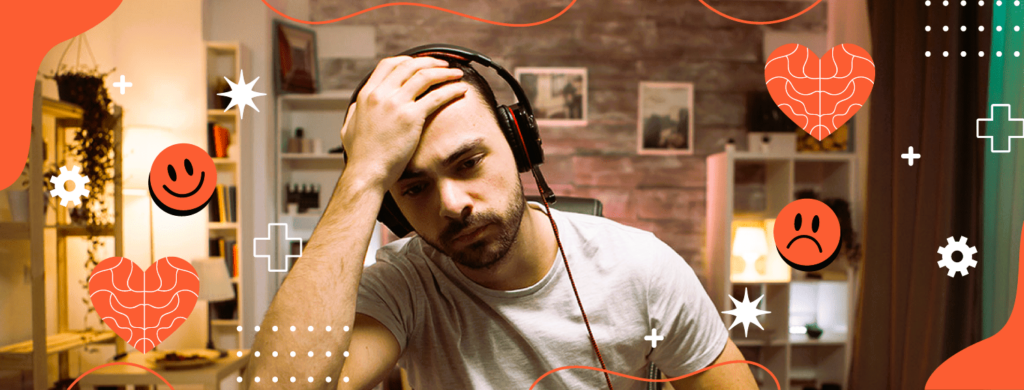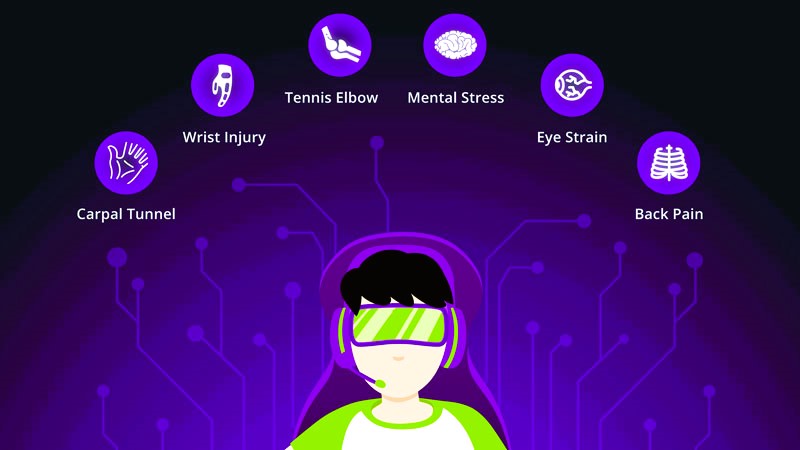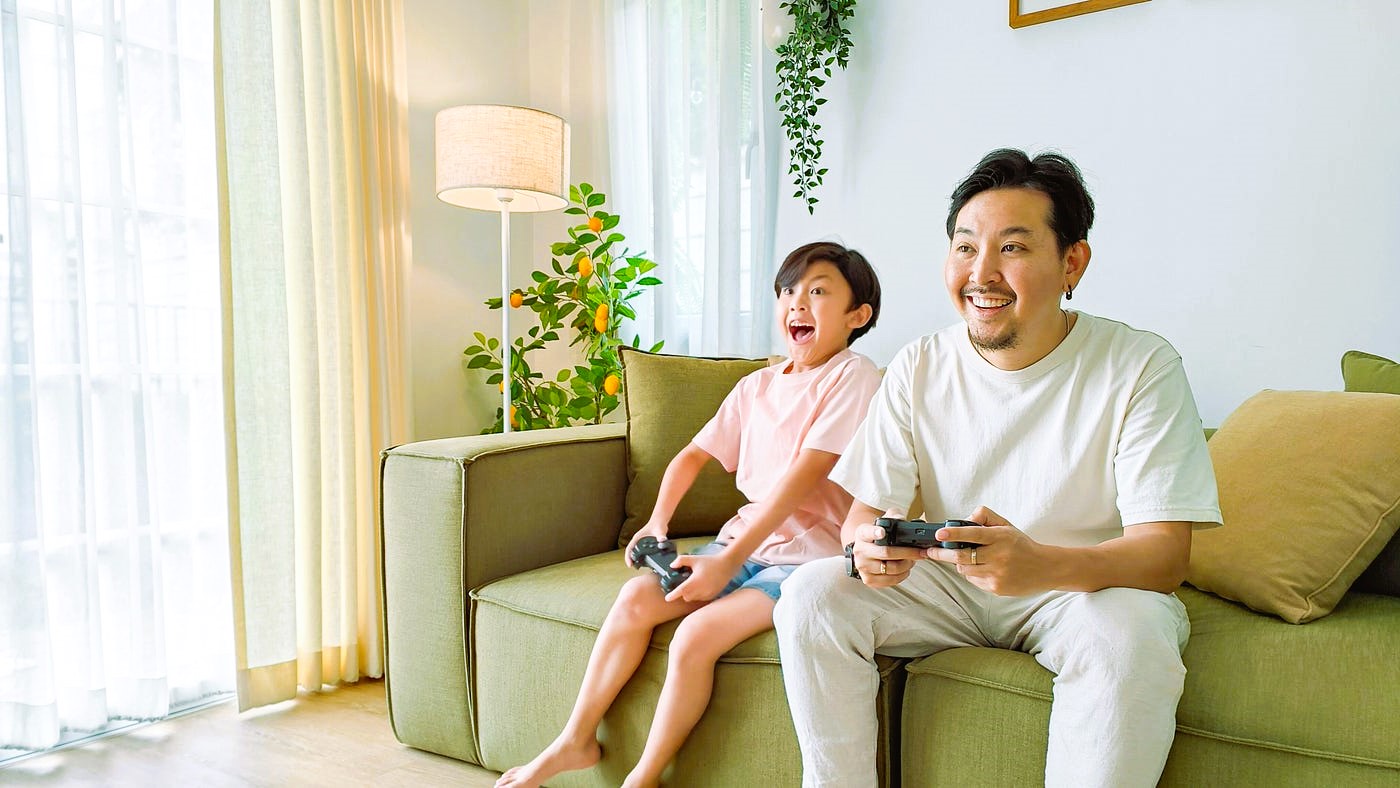Gaming has evolved into a global phenomenon, with millions of players spending hours immersed in virtual worlds. While gaming can be a fun and engaging hobby, spending long hours in front of a screen can lead to physical and mental health issues if proper care is not taken. From eye strain to back pain, the effects of prolonged gaming can add up over time. In this article, we’ll explore essential health tips to help gamers maintain their well-being in the long term.
The Importance of Balance: Gaming and Health
A balanced lifestyle is essential for long-term health, especially for gamers. While gaming can be a great form of entertainment, it’s important not to neglect physical health, mental well-being, and social connections. By following some simple guidelines, gamers can enjoy their favorite hobby while minimizing the potential negative effects on their bodies and minds.
1. Take Regular Breaks
One of the most common health issues among gamers is the tendency to sit for long periods without taking breaks. This can lead to a range of problems, including poor posture, back pain, and eye strain. To combat this, make it a habit to take short breaks every 30 to 60 minutes of gameplay. Stand up, stretch, walk around, and give your eyes a rest by focusing on something distant for a few seconds.
The 20-20-20 rule is an effective strategy to protect your eyes. Every 20 minutes, take a 20-second break and look at something 20 feet away. This reduces the strain caused by focusing on a screen for prolonged periods.
2. Ergonomics Matter
The importance of a comfortable and ergonomic gaming setup cannot be overstated. Spending hours in an uncomfortable chair or poorly positioned screen can lead to chronic pain in the back, neck, and wrists. To prevent this, consider the following:
- Use an ergonomic chair that supports your lower back and promotes a healthy sitting posture.
- Adjust the height and angle of your monitor so that the top of the screen is at or just below eye level. This prevents neck strain from looking up or down at your screen.
- Invest in wrist supports to reduce the risk of repetitive stress injuries like carpal tunnel syndrome. A keyboard with an ergonomic layout and a mouse that supports your wrist’s natural position can make a significant difference.
For more information on ergonomics, you can visit the Wikipedia page on Ergonomics.
3. Stay Hydrated and Eat Well
Hydration and nutrition play a crucial role in your gaming performance and overall health. It can be easy to snack on unhealthy foods and forget to drink water while gaming, but this can negatively affect your energy levels, concentration, and mood.
- Drink plenty of water throughout your gaming sessions. Dehydration can lead to fatigue, headaches, and reduced cognitive function.
- Choose healthy snacks such as fruits, nuts, or yogurt instead of sugary snacks or junk food. These foods provide sustained energy and help keep you focused.
- Eat regular meals to avoid feeling sluggish or overly hungry during gaming. Balanced meals with proteins, healthy fats, and whole grains will give you sustained energy.
4. Exercise Regularly
While gaming itself is a sedentary activity, it’s crucial to incorporate physical exercise into your routine to maintain overall health. Regular exercise not only helps prevent physical ailments like obesity and back pain but also boosts your mental health by releasing endorphins.
- Incorporate stretching into your daily routine to improve flexibility and reduce the risk of muscle stiffness.
- Take up activities like yoga, swimming, or walking to strengthen muscles and improve circulation. These can also help alleviate the tension caused by long hours of sitting.
- Engage in cardiovascular exercises to keep your heart healthy and improve overall stamina, which can help with gaming endurance.
Mental Health: A Crucial Component of Well-Being

Gaming can be mentally demanding, and it’s essential to address mental health concerns to maintain a balanced lifestyle. Long gaming sessions, especially when played competitively, can lead to stress, anxiety, and burnout. Here are a few strategies to protect your mental health:
5. Manage Stress and Anxiety
Competitive gaming can sometimes lead to high levels of stress, particularly if you’re trying to win or perform well. To reduce stress and maintain a healthy mental state:
- Practice mindfulness and relaxation techniques, such as deep breathing or meditation. These can help you stay calm during intense gaming moments and improve your overall well-being.
- Set realistic expectations for your gaming performance. It’s essential to enjoy the process and not focus too much on winning or outcomes.
- Take breaks when needed to recharge both mentally and emotionally. Stepping away from the screen can help prevent burnout.
6. Get Enough Sleep
Sleep is one of the most important aspects of overall health, yet many gamers sacrifice sleep in favor of playing. Chronic sleep deprivation can lead to various health problems, including poor concentration, mood swings, and impaired cognitive function. Like our article? Read also about Pedometers and fitness apps for gamers.
- Aim for 7-9 hours of sleep each night. Quality sleep helps your body recover, enhances memory, and boosts gaming performance.
- Create a bedtime routine that encourages restful sleep. Avoid playing games immediately before bed, as the blue light emitted by screens can interfere with sleep patterns.
Social Connections: Don’t Game in Isolation
While gaming can be a solitary activity, it’s essential to maintain social connections to foster mental well-being. Spending time with friends, family, and fellow gamers can provide emotional support and improve your overall health.
- Join online communities or gaming groups to connect with others who share your interests. This can reduce feelings of isolation and help you find like-minded people to game with.
- Take part in social activities outside of gaming, such as spending time with family and friends. A healthy balance between social interaction and gaming can contribute to better mental health.
Conclusion
Maintaining long-term well-being as a gamer requires a balance of physical activity, mental health care, proper nutrition, and social connections. By following these health tips, gamers can continue to enjoy their favorite hobby while safeguarding their health and performance. Remember, gaming should be fun, but it’s also important to care for your body and mind in the process.





